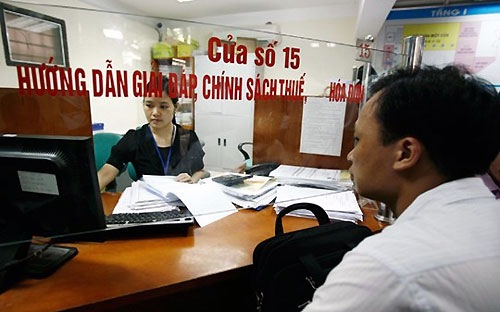The Law on Investment 2014 of Vietnam takes effect from July 01, 2015, replacing the Law on Investment 2005 with many important changes, especially regulations on investment bans, conditional investments and reform of investment administrative procedures.

The most important change of the Law on Investment 2014 of Vietnam is the creation of a transparent legal basis to ensure the exercise of citizens' freedom to invest and do business in industries and professions that are not prohibited by law through regulations on banned business lines and conditional business lines.
On the basis of reviewing and eliminating banned business lines which duplicate lines according to the decrees guiding the implementation of the Law on Investment, Law on Enterprises and Commercial Law, the new Law on Investment stipulates 6 business lines that are banned in Vietnam, including: trade in the narcotic substances; trade in the chemicals and minerals; trade in specimens of wild flora and fauna, specimens of rare and/or endangered species of wild fauna and flora; prostitution; human trafficking, trade in human tissues and body parts; business pertaining to human cloning.
In 386 conditional business lines as prescribed by current law, the Law on Investment 2014 specifically regulates the list of business lines according to the principle of abolishing unreasonable and unclear lines which create a compliance cost burden for investors.
The law also amends a number of business investment conditions in the direction of minimizing the form of licensing, certification or approval by competent state agencies to switch to applying the form of promulgating regulations on standards and conditions for investors to self-register and the management agency to conduct post-inspection etc.
The Law on Investment 2014 also strongly reforms administrative procedures towards transparency, simplicity and ensuring effective state management of investment with amendments and supplements, including:
Firstly, the Law abolished procedures for granting investment registration certificates to domestic investors.
Secondly, the law simplified documents, orders, procedures and shortened the time to carry out procedures for granting investment registration certificates to foreign investors with a maximum period of 15 days instead of 45 days as before.
Along with simplifying administrative procedures, the Law supplemented and completed a number of regulations to improve the efficiency of investment project implementation.
For example, the Law supplemented regulations on ensuring investors' project implementation obligations in the form of deposits; supplemented regulations on quality inspection of imported machinery, equipment and technology to implement investment projects; completed regulations on investment project transfer, investment delay extension, temporary suspension of investment activities, revocation of investment registration certificate and termination of investment project operations etc. in the direction of specifying conditions and procedures for implementing these activities, as well as the responsibilities of investors and the authority of local management agencies.
Thirdly, the Law regulates the establishment of enterprises by foreign investors in the direction of abolishing the requirement for an investment certificate (also a business registration certificate) to separate project-based investment from business registration.
In this direction, after carrying out procedures for granting investment registration certificates, foreign investors are allowed to establish enterprises at the business registration agency like domestic investors.
Besides, the law also clarifies the legal status of foreign-invested enterprises to serve as a basis for uniformly applying investment conditions and procedures to these enterprises in the direction that only enterprises with foreign investors holding more than 51% or enterprises with the above mentioned enterprises holding more than 51% will have to apply the same conditions and procedures as foreign investors.
In the remaining cases, enterprises shall apply the same investment conditions and procedures as domestic investors.
Fourthly, the Law regulates capital contribution, share purchase, and capital contribution of foreign investors in the direction that allows foreign investors to directly carry out procedures for changing members according to the provisions of law on enterprises without having to carry out investment procedures, except for cases where foreign investors contribute capital, buy shares, or contribute capital to businesses operating in conditional business lines that apply to foreign investors or where a foreign investor owns more than 51% of the enterprise's charter capital after contributing capital, purchasing shares, or contributing capital.
To reform this process, the Law on Investment 2014 clearly defines the scope of regulation of the Law on Investment and Law on Securities in the purchase of shares, details the forms of capital contribution, stock purchase, and capital contribution of foreign investors and clarifies the conditions that foreign investors must comply with.
Source: Doanhnhansaigon.vn
- Key word:
- Law on Investment 2014
 Article table of contents
Article table of contents










.Medium.png)
.Medium.png)
.Medium.png)
.Medium.png)
